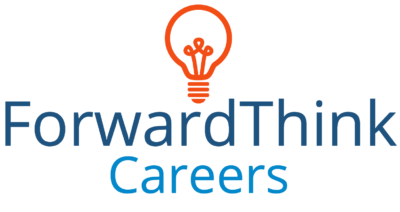

When you’re on a job hunt, it seems like everyone is telling you how important your personal brand is. The fact of the matter is, you already have a personal brand — you just might not be aware of it. Your brand is essentially your image and the way you market yourself…and consequently, how you’re viewed by others. Everything you do, say, wear, write, post or tweet affects your personal brand.
But don’t think of branding as a bad thing. It allows you to demonstrate that you’re a specialist, not a generalist. No one is JUST a lawyer, an accountant, or a copy editor. We all solve specific problems, use unique methodologies, and bring our own values, strengths and life experiences into the mix. We also serve different clients and customers.
The uncomfortable truth is, when you’re doing a job search, prospective employers are making quick decisions about you. If they’re not able to get a clear sense of you, they’ll likely move onto the next candidate. So you want to make it easy for them to determine you’re the right fit for the job. Below are three tips for defining your personal brand and getting noticed for the right opportunities:
Branding Tip #1 – Take Personal Inventory
If you were tasked with creating a brochure for a product, you couldn’t create it until you knew exactly what the product was, right? In this case, the product is you, of course!
So based on the types of roles you want to pursue, start asking yourself these questions:
• What are your top skill sets and accomplishments as they relate to these roles?
• What types of problems do you excel at solving and how do you solve them?
• Are there any specific methodologies or technologies you employ?
• Are there any experiences from your past that convinced you this work was your true calling?
• What makes you different from your competitors?
Doing this investigative work can be time-consuming, and it’ll require you to think through past positions, read old performance reviews, and speak to those who know your work. But gaining this insight will help flesh out your messaging — on your resume, cover letter, LinkedIn profile, personal website and social media pages.
Branding Tip #2 – Do Some Market Research
Once you’ve gone through these questions, get some confirmation in the marketplace. One helpful strategy is to look at 5-10 job descriptions of roles you’re targeting and pay attention to the language that gets repeated. What are the main hard skills required?
Defining your personal brand is all well and good, but if the language you’re using isn’t in alignment with what employers are looking for, it’s not going to serve you in your job search.
It’s also wise to look at LinkedIn profiles of other professionals who have the same or similar titles. Doing so will allow you to see how your competitors are branding themselves — and this will help you find ways to differentiate yourself.
Branding Tip #3 – Create Consistency Across Your Marketing Documents & Social Media Platforms
Now that you have a solid understanding of your product, it’s time to write your brochure, so to speak. But you’ll want to ensure there’s congruency in your messaging across your resume, cover letter, LinkedIn profile, Facebook and Twitter pages. On your resume and LinkedIn profile, use the professional summary section to create a brief personal branding statement. This could include a few of these items:
• your general title
• problems you love solving
• unique skill sets, specialties, methodologies or approaches you utilize
• industries you work in
• size of companies/for-profit vs. non-profit
• types of clients you work with
• number of years in your field
• what sets you apart from your competitors
• success stories
A well-composed personal branding statement can give a prospective employer a snapshot of which skills you most want to leverage and how you can bring success to their department.
Social media is another great place to build your brand. On Facebook, take advantage of the work section and include your title, current company and relevant skill sets. And while Twitter doesn’t have a work section, you can use your bio as a mini branding opportunity. That way when recruiters are sourcing candidates on these platforms, you’re more likely to come up in their searches. You can also create authority by posting relevant, industry-related articles and offer a brief commentary.
Summing it Up
So, job seekers, take heart! Personal branding doesn’t have to be a dirty word. By effectively defining and communicating your core strengths and abilities, you’ll make the jobs of recruiters and hiring managers a lot easier. And they’ll pay you back in spades.



